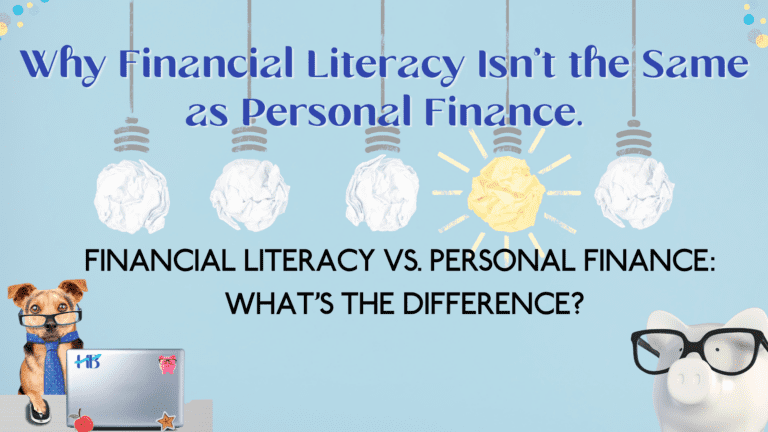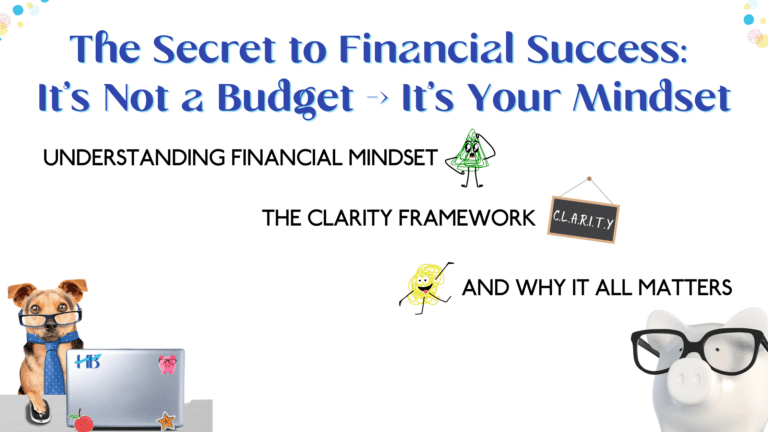
Have you ever seen the Grand Canyon? I did this past summer with my parents, husband, and kids. It had been on my bucket list for years, and seeing it in person was absolutely breathtaking. The sheer size of it, the depth, the colors—pictures don’t do it justice.
What struck me most was the realization that this enormous, awe-inspiring canyon wasn’t carved overnight. It took millions of years of the Colorado River persistently shaping the rock. Sure, the wind played a role, but the river was the main force behind what we see today.
Your financial mindset works the same way. So many things have influenced where you are today—your job, your choices, even the economy—but the strongest, most persistent force? Your childhood experiences with money.
Your Financial Mindset Didn’t Happen by Accident
Think back to your childhood. Did your parents stress over money? Did they save diligently? Spend freely? Avoid the subject altogether? Whether you realized it or not, those early experiences laid the foundation for how you handle money today.
For some people, that foundation is rock solid. For others, it’s full of cracks. Either way, here’s the good news: just like the river shaped the Grand Canyon, you can reshape your financial mindset.
Awareness: The First Step to Changing Your Money Story
If managing money feels frustrating or confusing, it’s not your fault. Financial literacy isn’t something we’re born with—it’s taught (or, unfortunately, not taught). And if money was a mystery in your house growing up, chances are, you’re figuring it out as you go.
But awareness is power. Once you recognize where your money habits come from, you can change the ones that aren’t serving you and build new, healthier ones.
Understanding Your Financial Mindset
We all have a money mindset that influences how we spend, save, and stress about finances. Some people are natural savers, while others lean toward spending. And let’s be honest—each group can be a little judgy toward the other.
Savers sometimes see spenders as reckless. Spenders sometimes think savers are no fun. (It’s kind of like the great pineapple-on-pizza debate. Some people swear by it. Others think it’s an abomination. Only one group is right. But I digress.)
Reframing How You Think About Money
he good news? You don’t have to fight against your natural tendencies—you just have to reframe how you approach money.
If the word “saving” makes you feel restricted, flip the script. Instead of “saving,” think of it as future spending. Instead of “budgeting,” think of it as a spending plan that gives every dollar a specific job. This shift makes managing money feel intentional rather than limiting.
Giving Every Dollar a Job
Next time you’re tempted to blow your paycheck on impulse purchases, try this: assign your money a job.
- Maybe it’s “working” toward a weekend getaway.
- Maybe it’s set aside for car insurance (ugh, but necessary).
- Maybe it’s funding a dream that’s been on the back burner for years.
The point? You get to choose. When every dollar has a purpose, you’re naturally more in control. And the best part? It doesn’t have to be hard. Small shifts in how you think about money can create huge changes over time.
If managing money feels overwhelming, you’re not alone. But you don’t have to figure it out on your own. With the right mindset and a clear plan, you can take control of your finances without the guilt, stress, or confusion.
Ready to reshape your financial story? Let’s make a plan that works for you, not against you.
👉 Work With Me to take the first step toward stress-free financial control.





